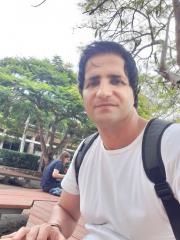
Researcher biography
Qualifications:
Hadi Shabanpour is a Ph.D. student in Environmental Management at School of the Environment at the University of Queensland (UQ). Prior to joining UQ, he was a researcher for the "Young Researchers and Elites Club" at the IAU Karaj branch (KIAU) for eight years. He also lectured at IAU and the University of Applied Sci. & Tech. in Iran. He obtained a BSc in Industrial Management from KIAU and a master’s in Strategic Management from the IAU-Central Tehran Branch.
His research is interdisciplinary and focuses on the assessment of DMUs' sustainability and circularity as well as industrial eco-efficiency through DEA models. Specifically, he investigates real-world and state-of-the-art frameworks for assessing and predicting DMUs' sustainability and eco-efficiency, as well as benchmarks for practical improvement.
Project title:
How to assess circularity of OECD Countries? A novel dynamic network DEA framework
Project description:
In line with the goals of the 2030 Agenda (for sustainable development) and the Paris Climate Agreement, energy performance and especially carbon emissions should be urgently addressed. Increasing the circularity of OECD countries (in addition to investing in renewable energy) can play a significant role in reducing CO2 emissions and tackling the challenges of the limitations of non-renewable energy and environmental degradation. Considering the shortcomings of macro-level circularity assessment methods and benchmarks, this project investigates a novel macro-level framework with the aim of identifying OECD countries' circularity levels, ranking them, and providing benchmarks for improving future less sustainable countries.
Funding:
The University of Queensland RTP Scholarship
Advisors/supervisors:
Associate Professor Paul Dargusch, Dr. David Wadley, and Prof. Reza Farzipoor Saen
